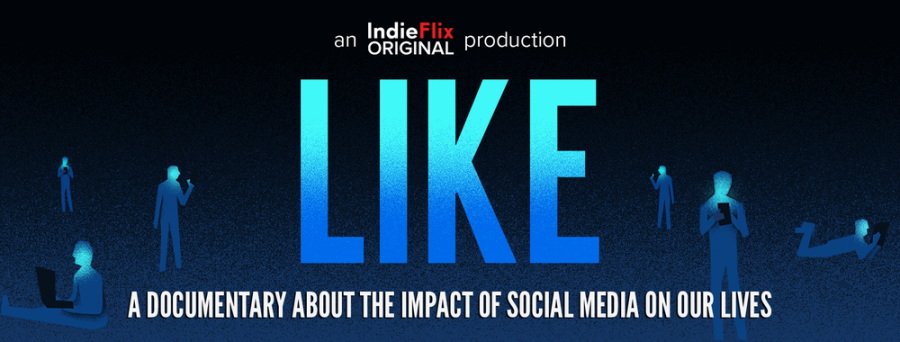LIKE documentary highlights dangers of social media
The Oct. 2018 documentary had a screening at Walter Johnson High School Jan. 15. The film highlights the effects of social media and how to monitor your technology use.
January 23, 2019
Social media is here to stay, and that’s a fact. How we use it, however, is constantly changing. The IndieFlix Original documentary LIKE, released Oct. 2018, highlights these modern effects of social media and technology on our generation and future generations.
The 48 minute documentary covers the social media culture in 2018 and how it has impacted teenagers lives and mental health. Directed by Scilla Andreen, who is the CEO and Co-Founder of IndieFlix and founder of the IndieFlix Foundation, the film features a variety of research from several technology companies.
The film consists of various interviews, from teenagers to Facebook workers, giving their take on the their experience with social media. Most of the teenagers admitted to their “addiction” to social media and how it dominates their lives.
According to the film, lots of the teens felt that they couldn’t stop their use, and that additional factors such as fear of missing out (FOMO) played a big role in that. Even after the film highlighted the 72 percent of teens who feel they are being manipulated by tech companies and their own device, the numbers are still on the rise for social media use.
Two college-age girls in the film admit to being avid Instagram and Snapchat users and speak about their very relatable experiences with combating expectations to be “perfect” and “happy all of the time” on social media so their accounts look good.
The documentary also proves that as the number of minutes while using technology increases, the number of unhappy users also rises, showing the correlation between technology use and depression.
Many adults interviewed in the film voice their concern for a generation whose face-to-face communication and interactions are less often. Even people like Max Stossel, the Head of Education for the Center for Humane Technology, which is an organization dedicated to re-aligning technology with humanity’s best interests, shared their experiences with technology and how they’ve realized the harmful effects technology has and how to channel these into benefits.
The documentary however was not anti-technology, as one may assume. Though it did frequently discuss reasons to be wary of our devices, it focused more on ways to reroute our addictions. Solutions such as charging your phone in a different room at night or even monitoring yourself for how many hours a day you spend on your phone can help to better navigate technology more safely.
Again, technology and social media are here to stay. However, LIKE emphasizes the power of self-regulation and self-empowerment to create a balance between the virtual and real worlds. Social media use, especially amongst teens, could be considered an epidemic. Although, watching the movie about devices and methods of control can help to give a wakeup call to all of us.


